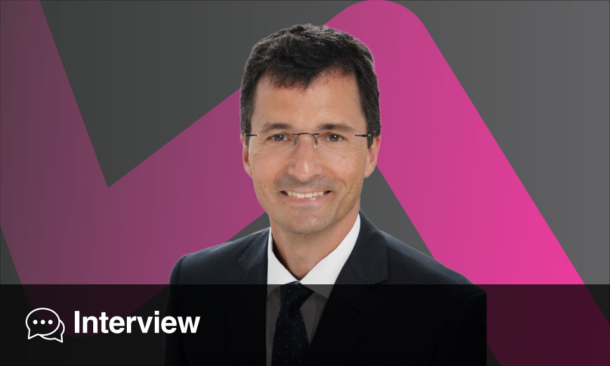Shweta Anjan | Associate Program Director, Transplant Infectious Disease Fellowship; Division of Infectious Diseases; Transplant and Immunocompromised Host Service; Jackson Memorial Hospital; Miami Transplant Institute; University of Miami Miller School of Medicine, Florida, USA
Citation: Microbiol Infect Dis AMJ. 2023;1[1]:31-33. DOI/10.33590/microbiolinfectdisamj/10305325. https://doi.org/10.33590/microbiolinfectdisamj/10305325.
![]()
We spoke with Shweta Anjan about advice for younger clinicians, applying antimicrobial stewardship to transplant infectious diseases, her research, and highlights from IDWeek 2023.
Have there been any specific challenges associated with embarking on your career path to subspecialise in transplant infectious diseases (TID), and do you have any advice for younger clinicians starting their journey into the field?
TID is an exciting and rapidly expanding field. I began my career as a medical student at Kasturba Medical College in Manipal, India, and moved to the USA to learn and practice evidence-based medicine. My interest in TID began during my internal medicine residency at the University of Pittsburgh Medical Center, Pennsylvania, USA, while on a TID elective as a second-year resident. I remember having to look up every diagnosis and antibiotic on my first day. I completed 2 years of infectious disease (ID) fellowship training, and an additional year of TID fellowship at the University of Miami Miller School of Medicine (UM) – Jackson Memorial Hospital (JMH), Florida, USA. One of the challenges I faced as an ID fellow was going from an ‘I want to learn and do it all’ mindset, to a mindset of identifying and developing a niche within TID. I had help from mentors at my own university and outside, who shared their experiences, and guided me through this process. My advice for younger clinicians would be to maximize opportunities, however small; keep an open mind; and find your network of peers and mentors to learn from and collaborate with.
Antimicrobial stewardship is a global focus. How does this apply to TID?
Antimicrobial stewardship programs are crucial in the prevention of antimicrobial resistance. Interestingly, transplant patients are hosts for multidrug resistant bacteria, arising from the use of prolonged prophylactic antibiotics, frequent hospitalizations, contact with healthcare settings leading up to transplant, invasive procedures, and weak immune systems.
Thus, for an antibiotic stewardship program to be successful, it must consider this vulnerable patient population. Antibiotic stewardship in transplant patients is more complex than stopping antibiotics for cost-savings. It involves using rapid diagnostics, like molecular testing; genome sequencing for early accurate diagnostics; diligent infection prevention measures; and, at times, escalation, or even combination antibiotic use, for synergy. None of these decisions are made in a vacuum; rather, it needs a cohesive multidisciplinary team discussion. Communication and teamwork are key to successful antimicrobial stewardship in transplant infectious disease.
Alongside your clinical role, you have been active in research. In 2023, the Clinical Research Forum bestowed you with one of their Top 10 Clinical Research Achievement Awards. Could you tell us about the research you received this award for?
The Clinical Research Forum is a non-profit organization dedicated to providing leadership to the national clinical and translational research enterprise, promoting understanding and support for clinical research, and its impact on health and healthcare. The Top 10 Clinical Research Achievement Awards program identifies major advances resulting from the nation’s investment in research, to benefit the health and welfare of its citizens. The study that was nominated and received an award was ‘Early Outpatient Treatment for Covid-19 with Convalescent Plasma’, led by David Sullivan at the Johns Hopkins University, Baltimore, Maryland, USA. I was the principal investigator for this multicenter randomized controlled trial in Miami. The study proved that COVID-19 convalescent plasma, when given early in the outpatient setting, reduced the risk of disease progression and hospitalization. With emerging COVID-19 variants, convalescent plasma remains a great treatment option, especially in immunocompromised patients, and resource-limited settings.
Earlier this year you co-authored a paper entitled ‘Difference between SARS-CoV-2, seasonal coronavirus, influenza, and respiratory syncytial virus infection in solid organ transplant recipients’. What were the main findings and clinical implications from this research?
Seasonal respiratory viruses like influenza, respiratory syncytial virus, and now COVID-19, are associated with increased morbidity and mortality in organ transplant recipients. The differences in severity of illness and outcomes of each were not studied before. We found that severe acute respiratory syndrome coronavirus 2 (SARS-CoV-2) infections were associated with higher incidence of intensive care admission, mechanical ventilation, and mortality. The older age group was at greater risk of viral pneumonia. Our cohort included patients from early 2020, when COVID-19 vaccines and treatments were unavailable. In 2023, I am certain a comparison study would yield different results.
What does your position as a member of the American Society of Transplantation (AST) involve?
I am a member on several committees and working groups within the AST. My most impactful work, however, is through the Community Education Committee, and the Executive Committee of the Trainee and Young Faculty Community of Practice. As part of the Trainee and Young Faculty Community of Practice, we empower early career transplant physicians and students interested in pursuing a career in transplantation, by providing a community and opportunities to participate in AST initiatives. As a community education committee member, I work with a diverse group of multidisciplinary transplant clinicians and patients to create and share resources for transplant candidates, recipients, living donors, caregivers, community partners, and the public, to advance their knowledge of transplantation and organ donation. This work resonates deeply with me, and inspires a profound sense of purpose and connection.
In 2022, you were involved with the Infectious Diseases Society of America (IDSA) Foundation Mentorship Advisory Committee. Why is this program important?
The IDSA Foundation Mentorship Program is a year-round program, connecting the future generation of ID trainees with seasoned mentors, as they begin to navigate their careers in the field. It started with the goal to increase the number and diversity of medical students and residents choosing ID as a career path, but the program now provides a community to mentors and mentees alike. I was a mentee on this program not too long ago, and I have been fortunate to have found inspiration and support from incredible clinician-mentors. The committee also provides ongoing training and support for mentors, the development of group education activities, and implementation of Inclusion, Diversity, Equity and Access (IDEA) best practices that increase the impact of program activities. The Mentorship Program is important because it helps maintain and build the ID workforce. With increasing antimicrobial resistance, emerging infections, and the possibility of future pandemics, the world needs a larger ID workforce.
What sessions for this year’s IDWeek, held in Boston, Massachusetts, do you feel were highlights from the event, and what were their key take-home messages?
Every session at IDWeek is so unique and knowledge-packed that it is hard to highlight just one. In my opinion, the highlights from the event were the opening plenary on artificial intelligence (AI) and healthcare, sessions on climate change-associated infections, and xenotransplantation.
The key points were consistent and clear: AI in healthcare is still developing, and it is prone to errors. There is a lot of work to be done until we can utilize this technology safely. Global warming, the acute and long-term changes in environmental conditions, natural disasters, and urbanization are altering vector ecology, and changing the epidemiology of infections as we know it.
Xenotransplantation, using organs from another species, most often pigs, has its challenges. The immunological hurdles are being overcome by genetic engineering, and use of alternative immunosuppressants. There is a risk of transmission of animal infections to humans, but this can be predicted with active surveillance with cultures, serologies, and molecular tests. There are knowledge gaps to be addressed on the availability of effective therapies for which we need human data.
Looking towards the future, are you currently working on any exciting projects, or are you intrigued by any emerging innovations in the field?
My current projects are focused on emerging fungal infections in solid organ transplant recipients, and the role of anti-fungal stewardship. I have been seeing an increase in fungal infections in my clinical practice lately, which piqued my interest. What truly intrigues me is new technology (AI), and incorporating it into clinical ID practice. So, I remain curious as to how AI will be an ally to infectious disease physicians.







